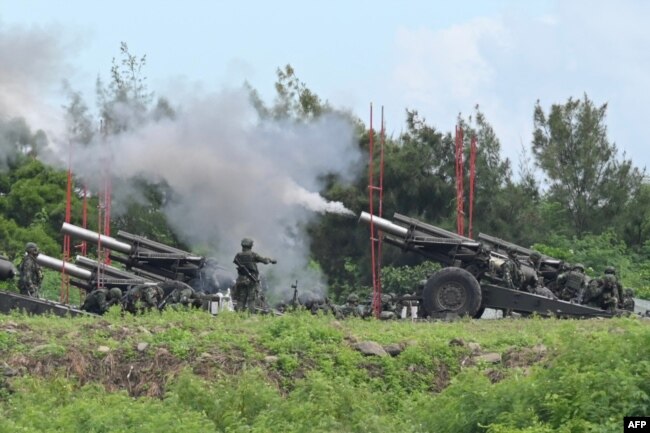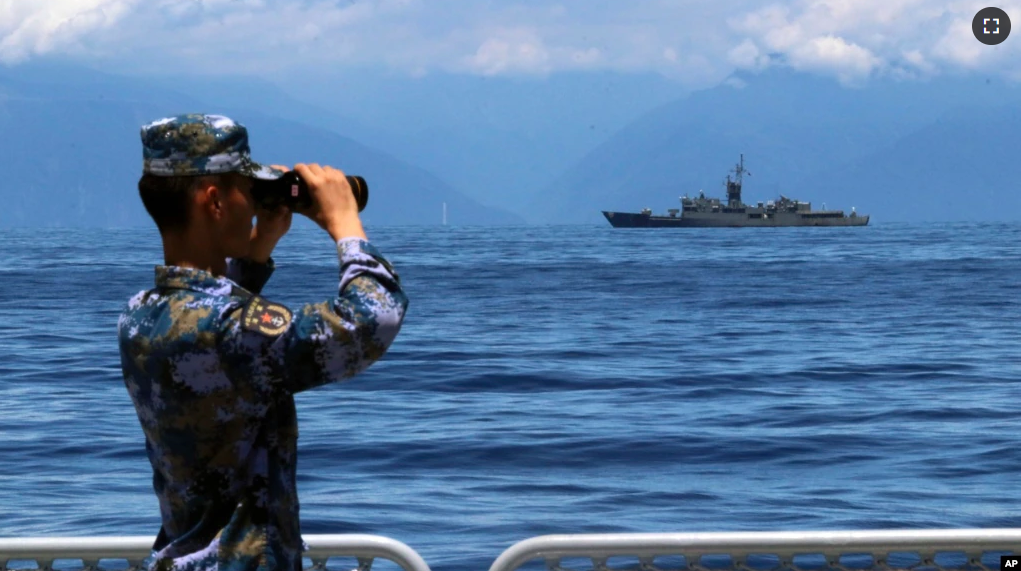China on Wednesday repeated its military threats against Taiwan. The country also withdrew a promise not to send troops or administrators to Taiwan if it controls the island.
China stated the policy in a document called “The Taiwan Question and China’s Reunification in the New Era.” The document came after nearly a week of missile firings and military exercises around the island in reaction to U.S. House Speaker Nancy Pelosi’s visit to Taiwan.
China has long declared that self-governing Taiwan is a part of its territory. Its 2005 anti-secession law says the island could be brought under control by force if necessary.
China re-stated its policy, saying, “we will not renounce the use of force.” It promised to take “all necessary measures” to “guard against external interference and all separatist activities.”
In the document, China again promised peaceful reunification under “one country, two systems.” It stated: “Taiwan may continue its current social system and enjoy a high degree of autonomy in accordance with the law.”
It was the same promise that China made with the former British colony of Hong Kong, which returned to Chinese rule in 1997. The document recognized that Hong Kong “faced a period of damaging social unrest” and order was restored.

Missing lines
In two earlier documents related to Taiwan, from 1993 and 2000, China had said that it “will not send troops or administrative personnel to be based in Taiwan” after reaching what it describes as “reunification”.
That line of language did not appear in the latest document.
Another line in the 2000 document said “anything can be negotiated” if Taiwan does not seek independence. That line is also missing from the latest document.
Zhu Guilan is an expert from the Institute of Taiwan Studies at Tsinghua University. He told the state-run Global Times that the new document was published in preparation for the upcoming Communist Party Congress. Zhu added that China’s economic and military power is now greater than ever.
All major Taiwanese political parties have rejected the “one country, two systems” proposal. The policy has almost no public support on the island.
Taiwan’s Mainland Affairs Council condemned the latest document. It said the document was “full of lies of wishful thinking and disregarded the facts.” It also said the Republic of China – Taiwan’s official name – was a sovereign state. “Only Taiwan’s 23 million people have the right to decide on the future of Taiwan,” the council said.
China appears to have ended its week-long military exercises that affected air traffic and shipping in the area. Its defense ministry said the exercises had met the goal of sending a warning to those favoring Taiwan’s independence and their foreign supporters.
I’m Dan Novak.
Hai Do adapted this story for Learning English based on reporting from Reuters, The Associated Press and Global Times.
_______________________________________________________________________
Words in This Story
renounce – v. to say something in an official way
autonomy – n. the power or right to govern itself
accordance – n. in a way that agrees with
disregard – v. to ignore or treat something as unimportant
sovereign – adj. having the right to govern itself
